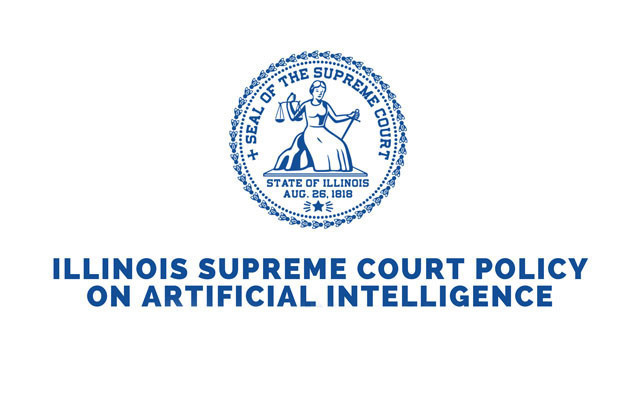
In Illinois regulates the use of AI by judges and lawyers

The use of artificial intelligence in court is allowed even without disclosure of this fact, but subject to compliance with legal and ethical standards. At the same time, lawyers, judges and self-represented parties are responsible for the final product of their work.
On January 1, 2025, the Illinois Supreme Court Policy on Artificial Intelligence will come into effect.
The document states that the integration of AI into court operations is becoming more widespread, offering potential opportunities for increased efficiency and improved access to justice. However, it also raises critical questions about the authenticity, accuracy, bias, and integrity of court documents, evidence, and decisions. Understanding the capabilities and limitations of AI technologies is important for the judiciary.
Courts will be closely monitoring AI technologies that may threaten due process, equal protection, or access to justice. Unconfirmed or intentionally misleading content generated by AI that promotes bias, harms litigants, or impedes truth and decision-making will not be tolerated.
The use of AI by litigants, attorneys, judges, court reporters, legal advisors, and court staff should not be discouraged and is permitted, provided it complies with legal and ethical standards. Disclosure of the use of AI in court filings is not mandatory.
The Rules of Professional Conduct and the Code of Judicial Ethics are fully applicable to the use of AI technologies. Lawyers, judges, and self-represented parties are responsible for the final product of their work. All users should carefully review AI-generated content before submitting it in a court proceeding to ensure accuracy and compliance with legal and ethical obligations. Before using any technology, including generative AI applications, users should understand both the general capabilities of AI and the features of specific tools.
The Court recognizes the need to use AI in a safe manner, respecting privacy laws and regulations. AI programs should not jeopardize sensitive information such as confidential communications, personal data, protected health information, justice and public safety data, security-related information, or data that violates judicial ethics standards or undermines public confidence.
The Illinois Supreme Court promises to regularly review the policy as these technologies evolve, prioritizing public confidence in the judicial system and the administration of justice. Judges remain ultimately responsible for their decisions, regardless of technological advances.
The Delaware Supreme Court reportedly issued a similar policy for judges and other judicial officials in October, and other state and federal courts have created committees and task forces to study the impact of AI on the judiciary.
© 2026 Unba.org.ua Всі права захищені
"Національна Асоціація Адвокатів України". Передрук та інше використання матеріалів, що розміщені на даному веб-сайті дозволяється за умови посилання на джерело. Інтернет-видання та засоби масової інформації можуть використовувати матеріали сайту, розміщувати відео з офіційного веб-сайту Національної Асоціації Адвокатів України на власних веб-сторінках, за умови гіперпосилання на офіційний веб-сайт Національної Асоціації Адвокатів України. Заборонено передрук та використання матеріалів, у яких міститься посилання на інші інтернет-видання та засоби масової інформації. Матеріали позначені міткою "Реклама", публікуються на правах реклами.